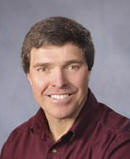We live in a generation that is generally characterized as underfit and over-fat. Population studies show that 90 percent of Americans do too little exercise to receive any measurable fitness benefit (Centers for Disease Control, 1989). In spite of our national emphasis on fitness and sports, it seems that most people are observers rather than participants.
On the other side of the coin, research reveals that one out of three Americans is obese, making over-fatness nothing short of a national epidemic (Harvard Health Letter, 1994). In spite of over 30 billion dollars spent annually on diet programs (New York Times News Service 1991), the incidence of obesity has increased by 25 percent in the last 15 years (Harvard Health Letter 1994). So what's wrong with this picture?
First, exercise does work, but too few people are doing it. Second, everyone is dieting, but diets don't work. Well, not everyone is dieting, but research reveals that one out of two American women and one out of four American men is presently on a calorie-restricted diet (Tufts University Diet and Nutrition Letter 1992).
But why don't diets work? If you cut down your calorie consumption you should lose weight, right? Yes, and you definitely do lose weight on calorie-restricted diets. However, your weight loss is almost always short-lived. Studies in this area show that 95 percent of all dieters regain all of the weight they lost within the following year (Brehm and Keller 1990). Whatever happened to will power?
Actually, willpower has very little to do with regaining the lost weight. It's much more a matter of physiology than psychology. First, about 25 percent of the weight loss is muscle tissue, and less muscle results in a lower metabolic rate (Ballor and Poehlman1994). In other words you have less vital tissue to service, so you burn fewer calories on a daily basis. Second, your body adjusts to the low calorie diet by further slowing your metabolism.
You may not notice the detrimental effects of a slow metabolism while you are dieting, but as soon as you increase your calorie intake, which you must do for survival purposes, you will be surprised at how quickly the lost weight is regained.
So why do people work so hard on something that works so poorly? Primarily because diets do produce satisfying short-term results. It's just the opposite with exercise, which may explain why few people take this approach to weight management. That is, short term changes in bodyweight are relatively small because exercisers typically add lean weight and lose fat weight at the same time.
For example, in a classic study conducted at Tufts University (Campbell 1994) 12 senior subjects were placed on a basic program of strength exercise. They performed about 30 minutes of strength training, three days a week, for 12 weeks. As a result they added three pounds of lean (muscle) weight, and lost four pounds of fat weight. Although their body weight changed by only one pound, they actually made a seven-pound improvement in body composition.
What's more, to keep the participants' body weight relatively constant the researchers had to increase their calorie intake throughout the study period. During the last few weeks of the study, the senior exercisers were eating 15 percent more calories every day to maintain their bodyweight. Unlike dieting, the strength exercise resulted in more muscle and more calories as the subjects lost fat. Of course, if the subjects had not increased their calorie consumption throughout the study they would have lost even more fat weight.
 | Wayne L. Westcott, Ph.D., is fitness research director at the South Shore YMCA in Quincy, MA. He is strength training consultant for numerous national organizations, such as the American Council on Exercise, the......more |